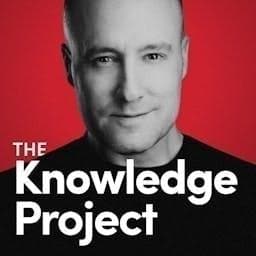Justin Wales, Head of Legal for the Americas at Crypto.com, and author of The Crypto Legal Handbook visits the show to provide his unique perspective on pivoting from a career in Constitutional Law, including work on high-profile appellate cases like the Obergefell gay marriage decision, to becoming a trailblazer in crypto law and blockchain technology.
He shares his serendipitous journey stemming from a law school article that launched his legal career and his subsequent deep dive into crypto, sparked by WikiLeaks accepting Bitcoin donations.
The discussion covers the evolution of his practice to one of the first successful crypto legal groups at a large law firm. Justin emphasizes the necessity for any lawyer in the space to use the technology and become a generalist to navigate the multi-jurisdictional and rapidly evolving industry.
Finally, the conversation touches on the critical distinction between centralized finance (CeFi) and decentralized finance (DeFi), and his outlook that crypto's infrastructure will ultimately serve as the underpinning for future advancements like Artificial Intelligence (AI) and the Internet of Things (IoT).
Episode Highlights:
* Justin's start in Constitutional Law, beginning with a law school paper on unconscionable cruise ship employment contracts that led to Supreme Court brief writing.
* The shift to crypto law: WikiLeaks and Bitcoin's role in it introduced Justin to blockchain technology.
* Building a pioneering crypto legal practice at a large firm in the early days (2013-2015).
* Why the best in-house lawyers, especially in a cutting-edge field like crypto, need to be generalists, not hyper-specialized.
* The inspiration and philosophy behind writing The Crypto Legal Handbook—creating an affordable, regularly updated, and candid resource for students and practitioners.
* Advice for aspiring crypto lawyers today: the field is more mature and requires blending traditional financial regulatory expertise with an industry-wide approach.
* The fundamental distinction between Centralized Finance (CeFi) and the legally complex, more innovative world of Decentralized Finance (DeFi).
* Rule #1 for Crypto Lawyers: Why you must use the technology and the risks of lawyers who are frozen in time with their technical understanding.
* High-level overview of US policy efforts to regulate crypto, including the GENIUS Act (Stablecoins) and the Clarity Act (Securities vs. Commodities regulation).
* Justin's crystal ball: The long-term view that crypto infrastructure will eventually become an unseen layer beneath the rise of AI agents and IoT.
Things We Talk About in this Episode
* Book: The Crypto Legal Handbook by Justin Wales
* Book: Read Write Own by Chris Dixon
* JustinWales.com (for more information on the book and author)




































